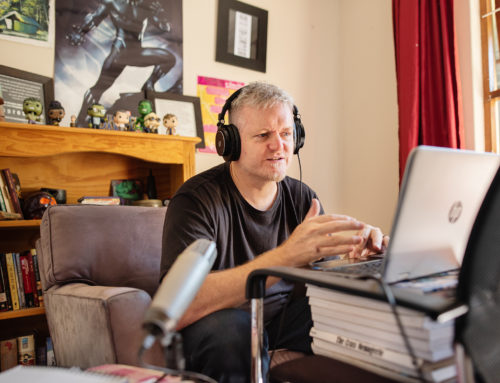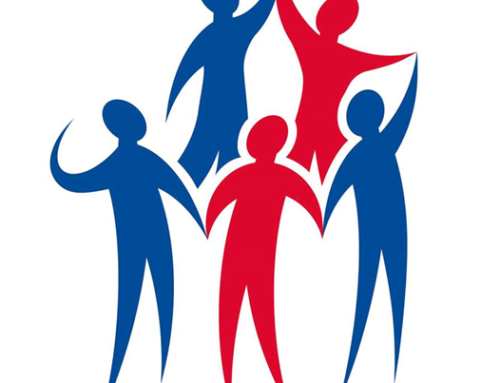This has been a tough two weeks with a focus on the deaths of Sinoxolo and Franziska in Cape Town.
Two tragic deaths. One not more important than the other. One not more meaningful than the other. Two lives lost. Countless families, friends, communities affected. Much pain.
These were two very bad things.
As people tend to do on social media, the moment you start speaking about the one, you are challenged about the other one. Accusations of making this a competition. It’s not a competition. It’s a tragedy. A bigger [or as equal?] tragedy perhaps is that while these two names were being highlighted on social media platforms, more have died, many who will remain largely nameless to the greater public. Can not all deaths simply be tragic?
i believe it is important though, for us as a nation, or as a community of communities [in the Western Cape] to be able to take a step backwards for a second, while holding on to the grief and the sadness and the fear and pain, and to be able to make observations about the deaths and the responses to them, so that we can learn and grow and figure out how to be able to do better in future.
A TRIP TO KHAYELITSHA
i heard about the young woman, Sinoxolo, who had been found murdered in a toilet in Khayelitsha, early on last week, and that someone had suggested we hold a vigil in the community and spent a few days back and forth with some friends and the organisers and those we know who live in Khayelitsha trying to figure out if this was the right ‘good thing’ to do.
There is a book called ‘Helping Hurts’ which strongly suggests that not all the help we ever want to give people is always the best help to be given. Sometimes things we do with the best of intentions can end up being insensitive to those we are trying to help. i saw a lot of this when my mate Rob died at the end of last year – in the questions people asked, in the actions people took, in the assumptions people made – all from places of good intention, but some really difficult and painful for those closest to Rob.
We should always start with the question, “Is my help going to help?”
We only figured out on Thursday or Friday i think that going into Khayelitsha on Saturday felt like a good thing to the community and the people involved. And so we were delayed in sharing the invitation which is possibly why not so many people knew about it. But a number of us met at the police station on Saturday morning, with the intention of paying our respects to the family and the friends and the community at large. My reason for going was largely to communicate the message from one white person who doesn’t live in Khayelitsha, that ‘This life was important. It mattered.’ i can’t speak on behalf of anyone else, except to say that from those i did manage to speak to, that seemed like the main reason people showed up.
WE REMEMBER
A photo can give you an idea, but i think you really need to stand next to this row of ten to twelve toilets standing in a clearing, with water pouring out from under the doors of some of them and big puddles of water in the sand in front of them, to start to have the smallest understanding of what is going on here.
i asked two policemen who were standing nearby where the next nearest toilets were and they motioned to a far off place that i couldn’t even see. Which means these toilets service 100s if not 1000s of people in the immediate vicinity.
One phrase i read later from someone else who was writing about this experience really struck me: We lock the toilet door when we go to the toilet in our homes.
After our time of singing and speaking and prayer, we were invited by the family of Sinoxolo [who we had heard were preparing for the funeral and so we had not wanted to invade that space or time] to gather at their home, and so we walked the 500m or so through alleys between shacks, past children and other young women who smiled at us as we walked past and home after home after home… There were twenty to thirty of us who had come from other places to attend the vigil and perhaps twenty of us made it to the house after the invitation came and waited in the yard outside. Sinoxolo’s uncle addressed us and i was struck by how, despite his grief, he took a moment to shed light on the murder of Franziska [people from both families have publicly brought the other family to the light and taken time to focus on the tragedy and loss of another family and community, which has felt really powerful] in Tokai and how both losses are a tragedy. We were thanked for showing up.
ALL DEATHS MATTER
Another statement that stood out for me came from i think, Siwe Coka, who spoke both beautifully and powerfully to the gathering at the toilets, reminding us that this was not the day for politics or a series of other grievances that the people there had, which were legitimate. Today was to focus on Sinoxolo’s life. But the phrase she said which jumped at me was, “Death knows no colour.”
i don’t think it is helpful or loving at a time of such tragedy as this, to hold up one death against another in some sort of sick competition, to make people feel bad for not grieving one death the same way as they did another.
But, i do think it is important for us, when the dust settles a little more perhaps, to critique and to try and understand the bigger picture of what happened, happens and is happening. When it comes to the media and how things were reported; when it comes to memorial and how things were remembered; when it comes to social media and how stories were shared and reflected upon; when it comes to the police and how each situation was responded to. These, and other questions matter, because tonight another fifty mothers will be fearing for the lives of their children who are simply needing to go to the toilet.
As i stood there next to the block of unfriendly-looking toilets my response was, ‘This is not okay!’ and i have no real idea how to pursue this thought further.
i don’t know that anyone in reality actually believes that it is okay… but when there are attempts to silence the critique of two very different, very tragic deaths, it can come across as that. Black, white, rich, poor, so often labels are not particularly helpful. This feels like an injustice thing.
How do we move on from here?








Great post and admirable of you to attend this gathering. It is not okay they live like this, but on that land with its loose sandy foundations it’s incredibly difficult to build piping and sewage systems. Over time the pipes will shift and crack. This area was always barren and never intended for settlement. The sad reality is that most of these people are from other areas in South Africa where the ANC has let them down.
I have a friend who works in the council for approving civil contracts and infrastructure. He said the population is growing exponentially. The influx of black people from ANC areas is causing a crisis which is becoming hard to deal with. The money is limited for the Western Cape and there don’t seem to be solutions.
I personally think it would be best to fund them and help them in their original areas like eastern Cape, Swaziland, and so forth. Infrastructure could be built there and it would work. Millions here in Western Cape just cannot no matter how hard we try. What is your view?